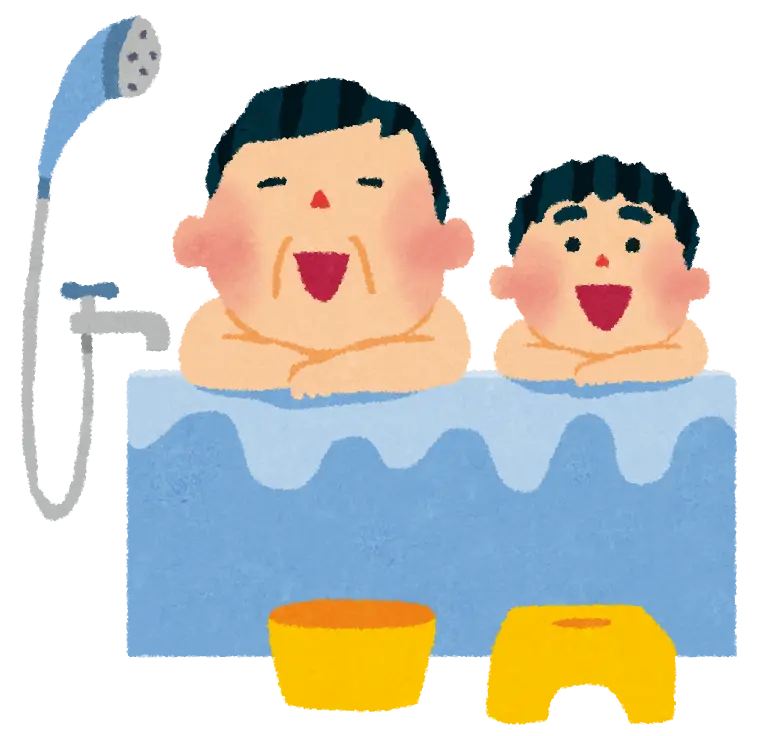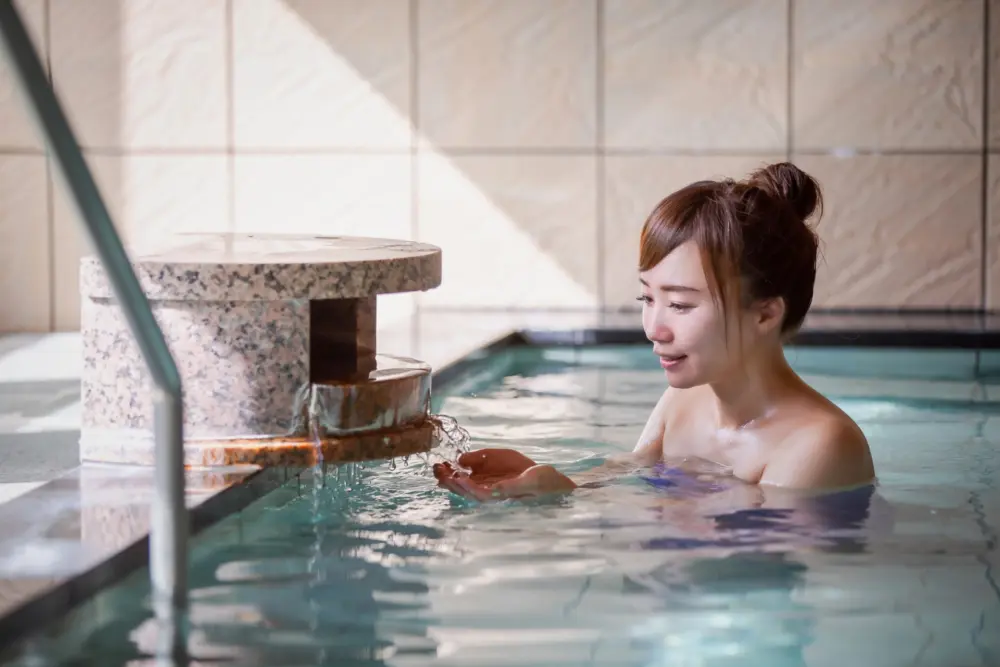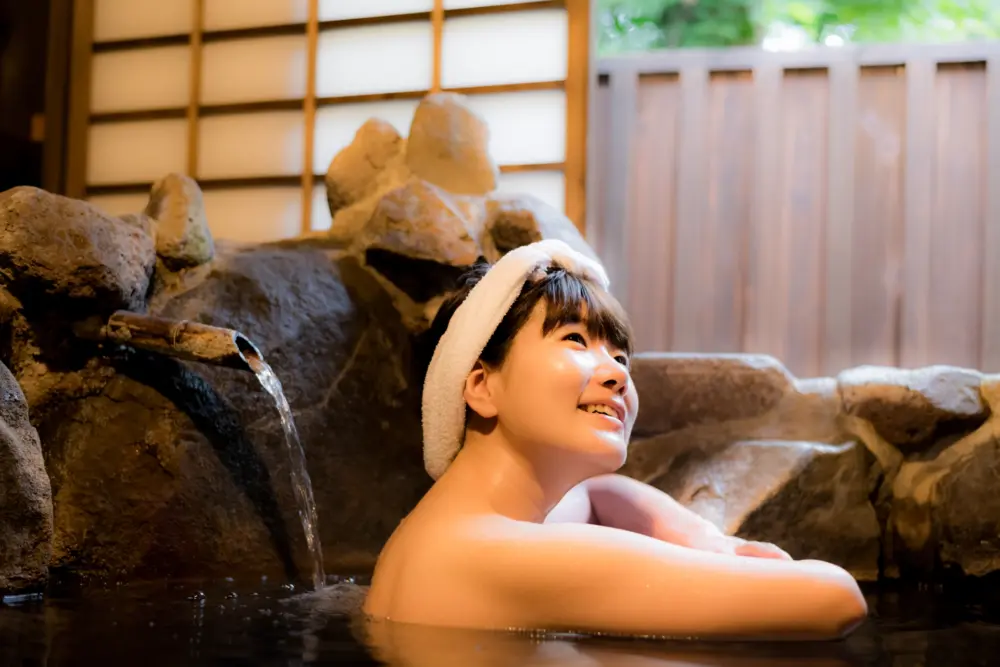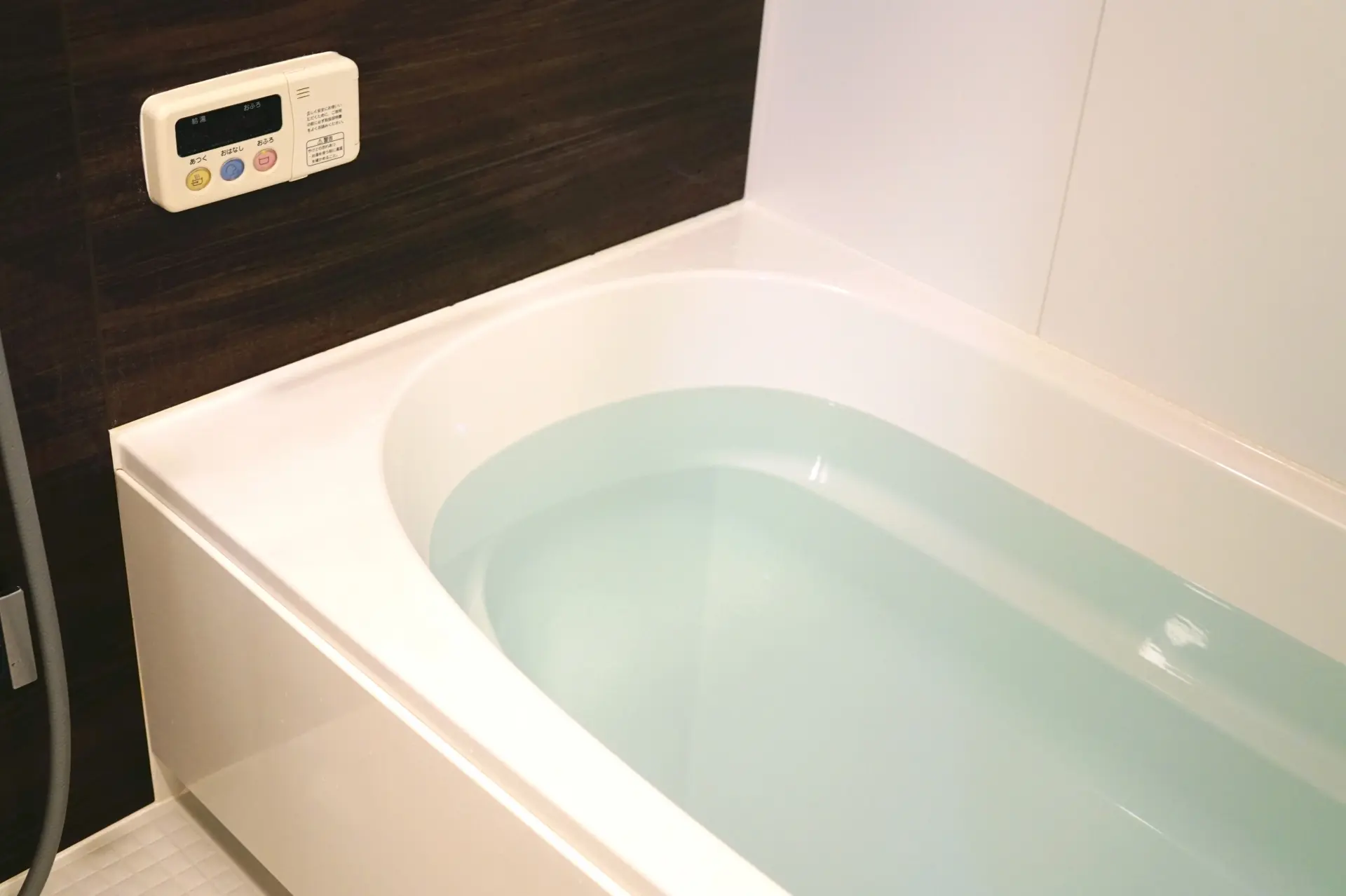Have you ever wondered why Japanese people prefer bathing at night? If you’re curious about this cultural habit, let’s explore why Japanese bath at night and the significance it holds.
This cultural habit reflects a blend of practicality, relaxation, and tradition. Indeed, it sheds light on why the Japanese bath at night.
Reasons Why Japanese Bath at Night
Relaxation After a Long Day

Bathing at night helps Japanese people unwind after work or school. Soaking in warm water improves blood circulation and reduces stress, promoting better sleep. This explains partially why Japanese bath at night.
Keeping Clean Before Bed
In Japan, it’s common to clean yourself before entering the bathtub. This habit not only keeps the water clean for others but also ensures you go to bed feeling fresh and comfortable, another reason for why Japanese bath at night.
Seasonal Adaptations
Japan’s winters can be cold, making a warm bath the perfect way to end the day. Even in summer, bathing at night helps wash away sweat and heat from the day. Therefore, seasonal changes also play a role in why Japanese prefer to bath at night.
The Role of Bathing in Japanese Culture

For Japanese people, bathing is more than just a way to stay clean. It is deeply rooted in their culture as a ritual for relaxation and mental well-being. Unlike quick showers, soaking in a hot bath is seen as a time to unwind and recharge.
Promoting Better Sleep
One reason many Japanese people take baths at night is that it helps improve sleep quality.
Soaking in warm water relaxes the muscles and lowers stress levels. This prepares the body for a restful night’s sleep.
Improving Blood Circulation
A warm bath encourages better blood flow throughout the body.
This is especially beneficial during the colder months, as it helps to warm the body and relieve tension. This capture part of why Japanese bathe at night.
Reducing Stress
Bathing is also considered a form of mindfulness in Japan. Many people enjoy taking a quiet moment for themselves while soaking in the bath.
It is a chance to disconnect from daily stresses and reflect in a peaceful environment.
A Tradition of Rejuvenation
Historically, public bathhouses (sento) and hot springs (onsen) have played significant roles in Japanese culture. These places are not only for bathing but also for socializing and relaxing. This tradition of using baths for physical and emotional healing continues to influence how Japanese people view bathing today.
By incorporating these practices, bathing in Japan has become a cherished daily ritual that balances cleanliness with relaxation and mental health, thus explaining why Japanese bath at night.
How to Enjoy a Japanese Bath

The easiest way to try a traditional Japanese bath is by visiting a local sento (public bathhouse). Remember, swimsuits are not allowed, as bathing is done nude.
If you feel shy about communal bathing, consider staying at a ryokan (traditional inn) with a private bath.
For example, the Dai-ichi Takimotokan in Hokkaido’s Noboribetsu Onsen offers private baths where you can enjoy the experience in peace.
Explore more about tattoo-friendly sento in Tokyo here.
FAQ
Yes, daily bathing is a common practice in Japan, as it’s seen as essential for hygiene and relaxation.
In Japan, people shower to clean themselves before soaking in the tub. The bath is used for relaxation, not for washing.
Absolutely! You can visit public baths, onsen, or even stay at a ryokan with private baths to enjoy this cultural experience.

